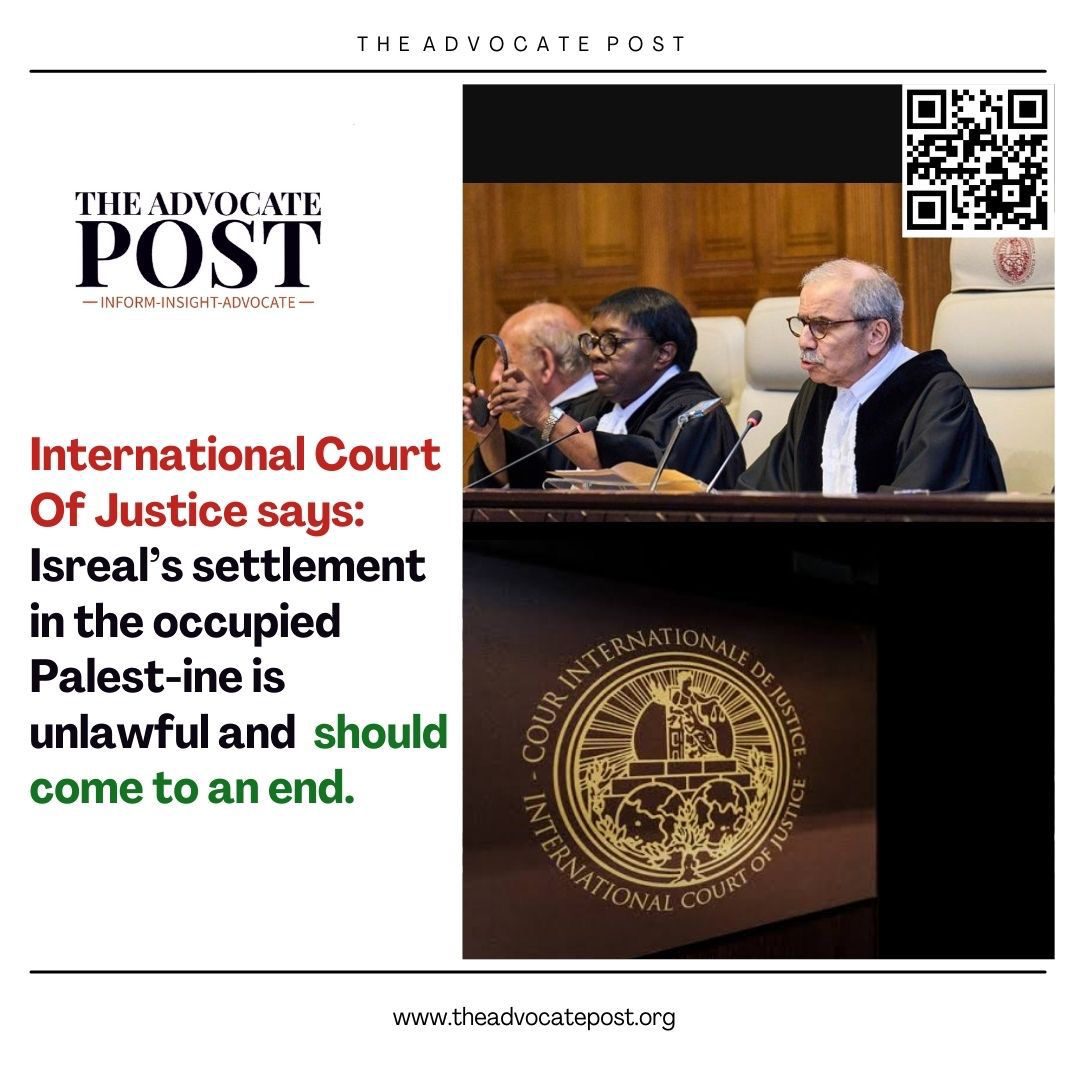News Desk
The United Nations’ top court said Friday that Israel’s presence in the West Bank and East Jerusalem is illegal, in an unprecedented opinion that called on Israel to end its decades-long occupation of territories claimed by Palestinians for a future state.
Although non-binding, the advisory opinion represents the first time the International Court of Justice (ICJ) has offered an opinion on the legitimacy of Israel’s occupation of areas it won in the 1967 conflict.
According to the ICJ, an advisory opinion has moral weight and the power to influence international law even though it is not legally enforceable. Palestinian officials praised Friday’s opinion, but Israeli leaders denounced it.
The ICJ listed numerous Israeli acts that it claimed breached international law in its comprehensive ruling, including taking land, establishing Israeli settlements in the territories, denying Palestinians of their right to self-determination and natural resources. The Israeli government was ordered by the court to stop building new settlements, remove existing ones, and compensate for any harm done.
“Large-scale confiscation of land and the degradation of access to natural resources divests the local population of their basic means of subsistence thus inducing their departure,” the International Court of Justice (ICJ) observed in a statement made by its president, Judge Nawaf Salam, of The Hague, Netherlands.
Israel overran neighboring Arab governments to take control of the West Bank, East Jerusalem, Gaza Strip, and Golan Heights during the 1967 war. It started building Jewish colonies in certain areas not long after.
The West Bank and Gaza are to be part of a future state whose capital will be East Jerusalem, according to the Palestinians. Jerusalem as a whole is regarded by Israel as its “eternal capital.”
It is also unrelated to the International Court of Justice hearings that took place in January in response to South Africa’s charge that Israel was carrying out genocide in its conflict with Hamas after the October 7 attacks—a charge that Israel has categorically refuted.





